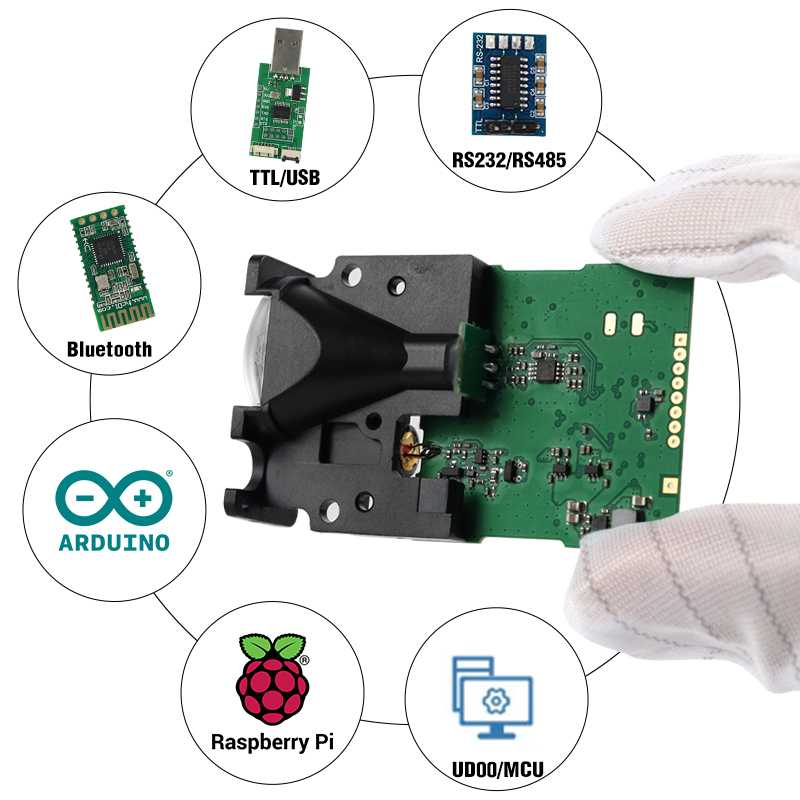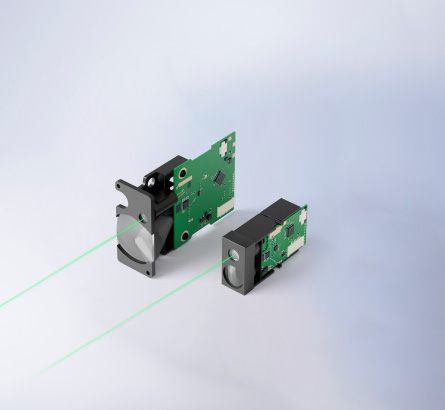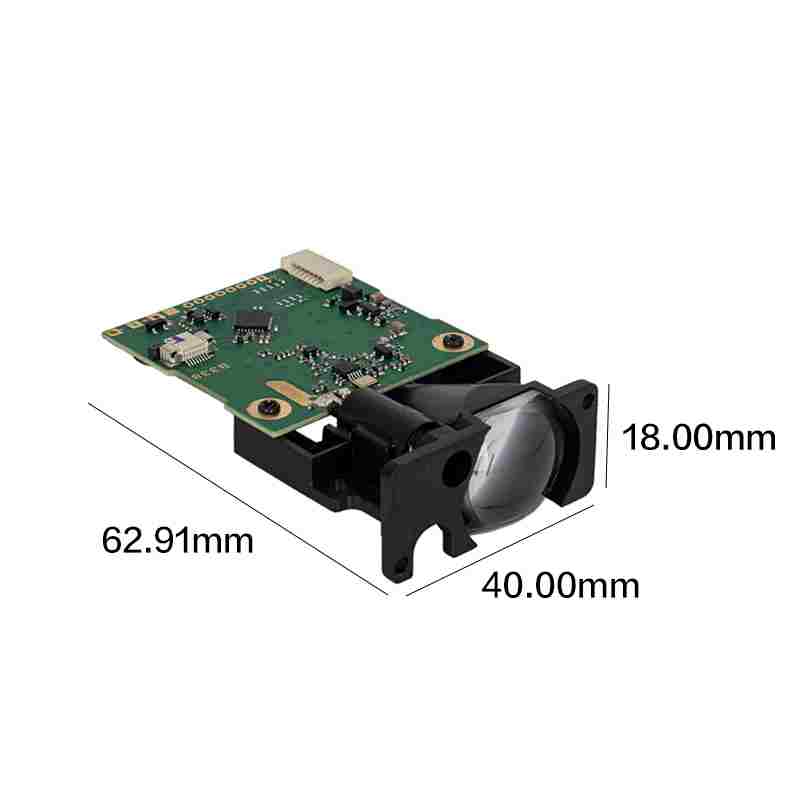If you’re working on an engineering or automation project, choosing the right Arduino distance sensor is crucial. Whether you’re developing a robot, UAV, or smart measuring device, precision and range matter.
Among all options, laser-based distance sensors using Flugzeit (ToF) technology are becoming the go-to choice for serious developers. In this article, we compare the best Arduino distance sensors for 2025 — from hobby-level to industrial-grade — including the high-performance Meskernel LDJ-200.
Why Choose a Laser-Based Arduino Distance Sensor?
Compared to ultrasonic and IR alternatives, Laser-Distanz-Sensoren offer:
- 📏 Longer range: from a few cm up to 200 meters
- 🎯 Hohe Genauigkeit: millimeter-level precision
- ⚡ Faster response time
- 🔦 Narrow beam angle: perfect for precise Erkennung
These advantages make them ideal for:
- Robotics & SLAM
- Industrial process control
- AGV and warehouse automation
- Smart cities and IoT systems
Top Arduino Distance Sensors of 2025
1. VL53L1X – Entry-Level ToF Sensor
- Reichweite: 0–4 m
- Genauigkeit: ±25 mm
- Schnittstelle: I2C
- ✅ Good starting point for Arduino Abstandssensor beginners
2. TF-Luna – Budget ToF Laser Sensor
- Reichweite: 0.2 – 8 m
- Genauigkeit: ±6 cm
- Schnittstelle: UART / I2C
- ✅ Affordable and reliable for Arduino-based robots
3. Meskernel LDJ-200 – Industrial-Grade Laser Distance Sensor
🔗 View LDJ-200 on Meskernel
- Type: Phase-based laser Arduino distance sensor
- Reichweite: 0.03 – 200 m
- Genauigkeit: ±3 mm + D×(1/10000)
- Resolution: 1 mm
- Measurement Rate: Up to 10 Hz
- Interfaces: TTL / RS232 / RS485 / Modbus / Ethernet / Bluetooth
- ✅ Top-tier Arduino distance sensor for professional and industrial applications
This module easily connects to Arduino via TTL, making it an excellent upgrade from basic sensors.
4. LIDAR-Lite v4 – Mid-Range Laser Sensor
- Reichweite: Up to 10 m
- Genauigkeit: ±2.5 cm
- Schnittstelle: I2C / PWM
- ✅ Used in drones and DIY Lidar Anwendungen
Arduino Distance Sensor Comparison Table
| Sensor | Bereich | Genauigkeit | Schnittstelle | Bester Anwendungsfall |
|---|
| VL53L1X | 0–4 m | ±25 mm | I2C | Beginners, basic robots |
| TF-Luna | 0.2–8 m | ±6 cm | UART / I2C | Robots, proximity detection |
| Meskernel LDJ-200 | 0.03–200 m | ±3 mm + D×(1/10000) | TTL / RS485 / Modbus | Industrial Arduino distance sensing |
| LIDAR-Lite v4 | Up to 10 m | ±2.5 cm | I2C / PWM | Drone height sensing, mapping |
How to Connect LDJ-200 to Arduino
The LDJ-200 Laser-Distanz-Sensor is compatible with Arduino using TTL UART.
Wiring Tips:
- Use level shifter if needed (Arduino 5V <-> Sensor 3.3V TTL)
- Connect to external power supply (12V recommended)
- Share common ground with Arduino
Sample Arduino Logic (Pseudo-Code):
void loop() {
if (Serial1.available()) {
float distance = readLaserSensor(); // Your parsing function
Serial.print("Entfernung: ");
Serial.print(Abstand);
Serial.println(" mm");
}
}
Meskernel provides complete documentation and integration support upon request.
For engineers who need a precise, long-range Arduino distance sensor, the Meskernel LDJ-200 offers unmatched performance and industrial-grade reliability.

 Outdoor Laser-Abstand Sensor
Outdoor Laser-Abstand Sensor
 Phase Laser Distance Module 150m1
Phase Laser Distance Module 150m1
If you’re just starting or prototyping with a limited budget, sensors like the VL53L1X or TF-Luna are great entry points.
Frequently Asked Questions
Can I use a laser distance sensor outdoors with Arduino?
Yes, but ensure the sensor has good ambient light resistance or is equipped with a narrow beam angle.
Which sensor is best for long-distance measurements on Arduino?
The laser distance sensors by Meskernel TS1224 offer reliable results over 2000 meters.
Most are Class 1 or Class 2 laser devices, considered eye-safe for brief exposure.
Is the LDJ-200 compatible with Raspberry Pi or Jetson Nano?
Absolutely. It supports multiple interfaces like RS232, Modbus, and UART, which are compatible with various platforms.
Can I get Arduino sample code for LDJ-200?
Explore Further
🔗 Buy Meskernel LDJ-200
🔗 Full Meskernel Product Catalog
📩 Contact Meskernel for OEM/ODM Arduino-compatible modules: [email protected]